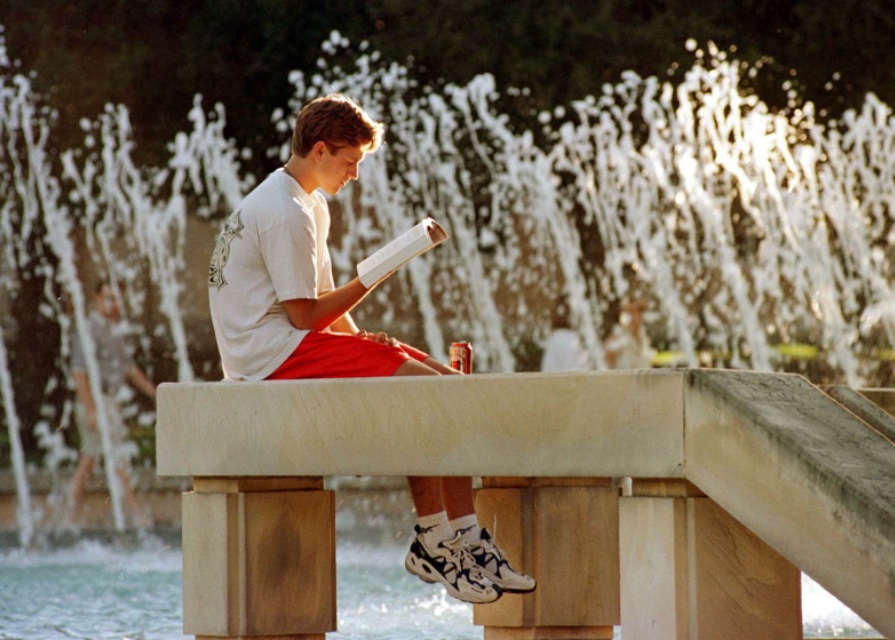Must-Know NCAA Recruiting Rules and Regulations
Can I talk to a college coach during an AAU tournament? Am I required to pay for travel for an official campus visit? What time of year can I call a recruiter?
Questions involving the NCAA’s rules and regulations are plentiful, but just because you’re still in high school doesn’t mean you’re exempt from observing the rules. In fact, knowing and understanding them could make a difference in whether you are offered a scholarship or receive admittance to the school of your choice.
Here are six important aspects of the recruiting process and the NCAA rules that govern each one:
Contact With Coach
There are several different contact periods, each with its own rules and regs concerning the kind of communication permitted between a coach and a prospective recruit. During a Contact Period, communication is permitted, including face-to-face and both on- and off-campus. Coaches may also write, call and speak with parents or guardians.
During the Evaluation Period, a coach may visit an athlete’s high school to take in a practice or game; however, contact is forbidden. During the Quiet Period, phone calls and letters are permitted, but in-person contact is forbidden and coaches may not watch athletes play or visit their schools.
Tournament Contacts
Besides campus visits or meetings at an athlete’s high school, the next best chance an athlete has to impress a coach is at tournaments such as AAU and showcase events. Coaches get an opportunity to evaluate multiple recruits at one time. However, many of these tournaments and events occur during Evaluation Periods, meaning coaches can attend and observe but cannot initiate any form of contact. In most cases, contact between a coach and an athlete is not permitted before the start of and throughout the tournament.
This is why it’s important for an athlete to be aware of the rules—especially as they relate to the current recruiting period, when the athlete may be likely to have contact with a coach.
Official Visits
Prospective student-athletes are allowed official visits to five schools of their choice, each not to exceed 48 hours.
An athlete must submit his or her SAT or ACT scores to schools in advance of being offered an official visit. The athlete may present the scores through an official or unofficial academic transcript, or directly from a testing agency.
Regarding travel plans, schools are permitted to fly athletes to and from campus via commercial airlines at coach fares. For vehicle transportation, schools reimburse the cost of gas mileage. They also provide hotel accommodations.
While on campus, an athlete is allowed to accept up to three complimentary tickets to a home game. However, the athlete and his or her family must view the game from the general seating area. They are denied access to the field or court, as well as to the press box and locker rooms.
The recruit is financially responsible for entertainment costs during an official visit.
Gift Guidelines
The rules strictly forbid an athlete from accepting monetary gifts or special arrangements for family and friends. This rule applies throughout the entire recruiting process—on- and off-campus visits, tournament contacts, official signing day—and continues throughout the athlete’s collegiate career. Neither the athlete nor his parents or guardian may borrow money from a representative of a college or university at any point in the recruiting process. Gifts of the following items are also prohibited: personalized jerseys, team merchandise, equipment, clothing, loans or co-signing of loans, employment arrangements and free or discounted housing.
Publicity
Media outlets and even some athletic departments may attempt to promote a recruiting visit. But NCAA rules forbid visiting recruits from making media appearances [e.g. radio or television interviews, press conference]. A prospective recruit may not be introduced in any public capacity or participate in any game activities.
Text Messages/Social Media
E-mails are permitted. Texting and Instant Messaging are prohibited.
The rules on social media vary by division. For example, Divisions I and II allow coaches to contact recruits through the direct message function of Twitter. Coaches may also follow recruits through Twitter, and vice versa. However, publicly mentioning a recruit’s name or sending an “@reply” message are impermissible.
Division III forbids the use of social networking sites for recruiting purposes.
To learn more about NCAA rules governing campus visits, and for answers to FAQs regarding NCAA rules, review this article: Key NCAA Rules & Regs.
Photo: Courtesy of UT Athletics
RECOMMENDED FOR YOU
MOST POPULAR
Must-Know NCAA Recruiting Rules and Regulations
Can I talk to a college coach during an AAU tournament? Am I required to pay for travel for an official campus visit? What time of year can I call a recruiter?
Questions involving the NCAA’s rules and regulations are plentiful, but just because you’re still in high school doesn’t mean you’re exempt from observing the rules. In fact, knowing and understanding them could make a difference in whether you are offered a scholarship or receive admittance to the school of your choice.
Here are six important aspects of the recruiting process and the NCAA rules that govern each one:
Contact With Coach
There are several different contact periods, each with its own rules and regs concerning the kind of communication permitted between a coach and a prospective recruit. During a Contact Period, communication is permitted, including face-to-face and both on- and off-campus. Coaches may also write, call and speak with parents or guardians.
During the Evaluation Period, a coach may visit an athlete’s high school to take in a practice or game; however, contact is forbidden. During the Quiet Period, phone calls and letters are permitted, but in-person contact is forbidden and coaches may not watch athletes play or visit their schools.
Tournament Contacts
Besides campus visits or meetings at an athlete’s high school, the next best chance an athlete has to impress a coach is at tournaments such as AAU and showcase events. Coaches get an opportunity to evaluate multiple recruits at one time. However, many of these tournaments and events occur during Evaluation Periods, meaning coaches can attend and observe but cannot initiate any form of contact. In most cases, contact between a coach and an athlete is not permitted before the start of and throughout the tournament.
This is why it’s important for an athlete to be aware of the rules—especially as they relate to the current recruiting period, when the athlete may be likely to have contact with a coach.
Official Visits
Prospective student-athletes are allowed official visits to five schools of their choice, each not to exceed 48 hours.
An athlete must submit his or her SAT or ACT scores to schools in advance of being offered an official visit. The athlete may present the scores through an official or unofficial academic transcript, or directly from a testing agency.
Regarding travel plans, schools are permitted to fly athletes to and from campus via commercial airlines at coach fares. For vehicle transportation, schools reimburse the cost of gas mileage. They also provide hotel accommodations.
While on campus, an athlete is allowed to accept up to three complimentary tickets to a home game. However, the athlete and his or her family must view the game from the general seating area. They are denied access to the field or court, as well as to the press box and locker rooms.
The recruit is financially responsible for entertainment costs during an official visit.
Gift Guidelines
The rules strictly forbid an athlete from accepting monetary gifts or special arrangements for family and friends. This rule applies throughout the entire recruiting process—on- and off-campus visits, tournament contacts, official signing day—and continues throughout the athlete’s collegiate career. Neither the athlete nor his parents or guardian may borrow money from a representative of a college or university at any point in the recruiting process. Gifts of the following items are also prohibited: personalized jerseys, team merchandise, equipment, clothing, loans or co-signing of loans, employment arrangements and free or discounted housing.
Publicity
Media outlets and even some athletic departments may attempt to promote a recruiting visit. But NCAA rules forbid visiting recruits from making media appearances [e.g. radio or television interviews, press conference]. A prospective recruit may not be introduced in any public capacity or participate in any game activities.
Text Messages/Social Media
E-mails are permitted. Texting and Instant Messaging are prohibited.
The rules on social media vary by division. For example, Divisions I and II allow coaches to contact recruits through the direct message function of Twitter. Coaches may also follow recruits through Twitter, and vice versa. However, publicly mentioning a recruit’s name or sending an “@reply” message are impermissible.
Division III forbids the use of social networking sites for recruiting purposes.
To learn more about NCAA rules governing campus visits, and for answers to FAQs regarding NCAA rules, review this article: Key NCAA Rules & Regs.
Photo: Courtesy of UT Athletics
RECOMMENDED FOR YOU
Create A Free Recruiting Profile Today!
CaptainU helps athletes & parents not only be proactive but also to manage and take control of their entire recruiting journey.













